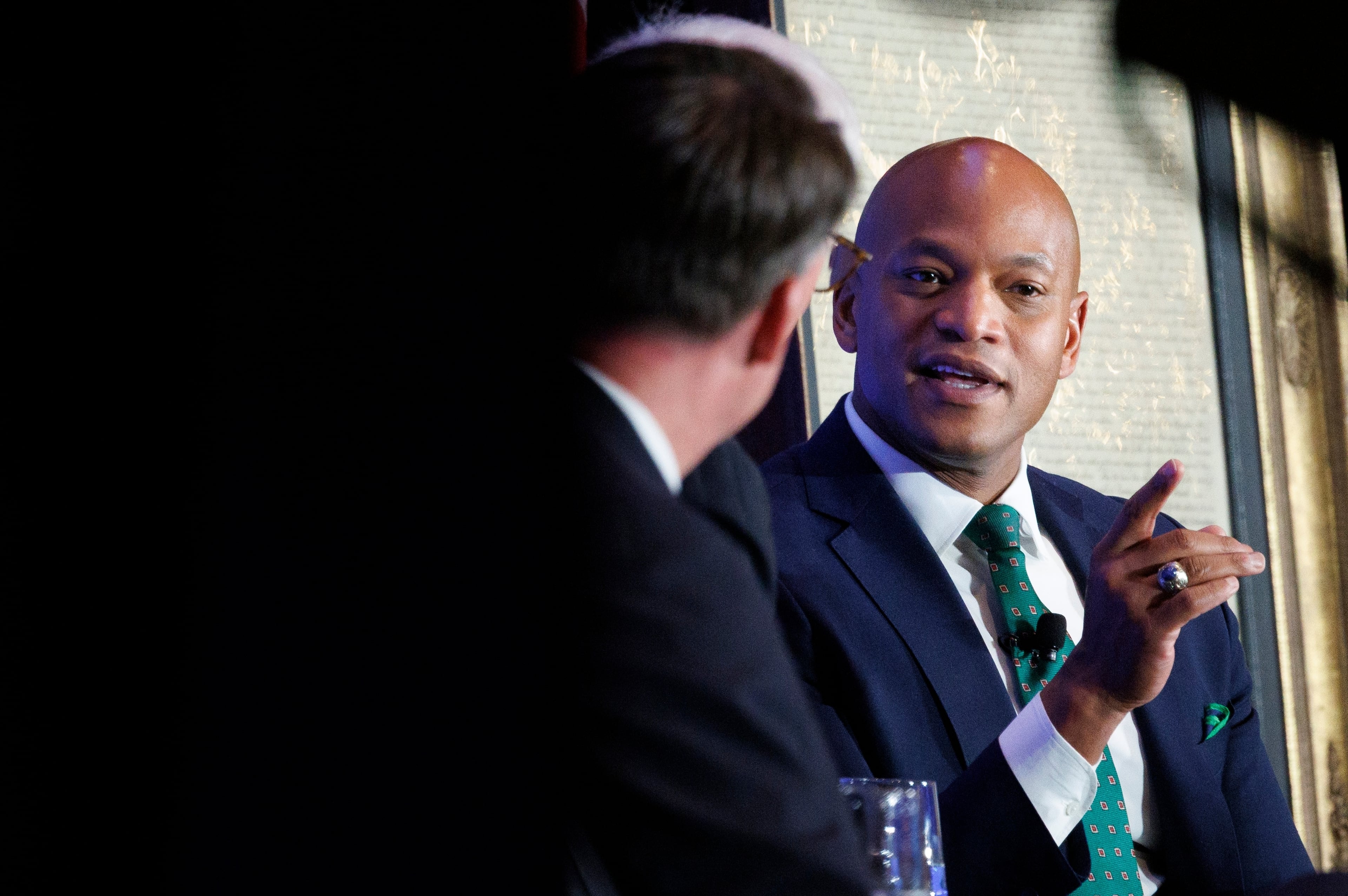5 things to know about U.S. Sen. Joe Manchin
Joe Manchin has represented West Virginia for more than a decade, emerging as a key player as a conservative Democratic vote in a sharply divided U.S. Senate.
The veteran senator and two-term West Virginia governor, who is traveling the country as he considers a third-party presidential run this year, will take part in a town hall with The Atlanta Journal-Constitution on Friday.
Path to politician
Manchin, 76, was born Aug. 24, 1947, in Fairmont, West Virginia, and grew up in nearby Farmington, where he worked in his family’s grocery and furniture stores, according to a profile from West Virginia Public Broadcasting. His U.S. Senate website said he attended West Virginia University on a football scholarship.
He entered politics in 1982 with his election to the state House of Delegates. He served as secretary of state and governor of West Virginia before his election to the Senate in 2010. He won in a special election after the death of Democratic Sen. Robert C. Byrd.
Supporter of coal
As chairman of the Senate Energy and Natural Resources Committee, he has been a strong supporter of West Virginia’s coal industry, noting on his Senate website that his hometown is a “small coal mining town.” In 2022, he demanded an apology after President Joe Biden promised in California to close the nation’s coal plants. The Associated Press said Manchin said the comments were “not only outrageous and divorced from reality, they ignore the severe economic pain the American people are feeling because of rising energy costs.” The White House responded that Biden’s words had been “twisted to suggest a meaning that was not intended,” the AP reported, and that the president “regrets it if anyone hearing these remarks took offense.”
While Democrats moved aggressively away from fossil fuels in an effort to combat the threat of climate change, Manchin pressed for an “all of the above” energy policy intended to maintain coal as at least a component of the nation’s energy portfolio, the AP has reported. Thus, he presented himself to voters as the reasonable moderate between two extremes.
Potential candidate for president?
Manchin’s decision not to run for reelection in 2024 has been accompanied by hints and rumors that he might run as a third-party candidate for president.
The AJC’s Greg Bluestein reported on a November visit by Manchin to Athens, where he spoke about the importance of bipartisanship in the nation’s current political divide. In remarks at the University of Georgia and in an interview, Manchin said he planned to travel the nation to see whether there’s interest in “creating a movement to mobilize the middle.” His long-planned appearance two months ago at the inaugural Isakson Symposium on Political Civility at UGA was effectively his first stop.
On NBC’s “Meet the Press” in November, Manchin said that he would “absolutely” consider a run for president. In December, he joked that the nation could use someone slightly younger than the leading contenders, President Joe Biden and former President Donald Trump.

Divider or uniter?
Despite being seen as a contrarian by many of his liberal fellow Democrats, he’s also no fan of Trump. Manchin was seen by some as a divisive force in Congress and on the national political landscape.
However, as AP and other media have noted, Manchin played a key role in the closely divided Senate, helping to pass the bipartisan infrastructure law and crafting the Inflation Reduction Act, which lowered prescription drug prices, provided health care subsidies and invested heavily in clean energy projects, as well as embracing support for carbon sequestration and storage, and other projects to support the fossil fuel industry.
Manchin points out that this Congress was one of the most productive in U.S. history because Democrats and Republicans were forced to work together.
“There were people upset thinking I had this power. I said, ‘I don’t have any more power than any of the other senators,’ ” he said. “I can’t figure out why you all won’t use it to do something good for our country and our states we represent.”
Personal side of a public figure
Joe and Gayle Conelly Manchin have been married for over 50 years. His wife’s public duties include serving as the federal co-chair of the Appalachian Regional Commission, and the former educator also served on the state Board of Education in West Virginia. The couple have three children and 10 grandchildren.
In his official Senate bio, Manchin shares that he’s also an avid pilot, outdoorsman, hunter, angler and motorcyclist.


